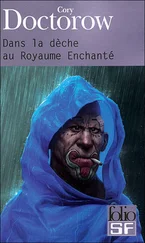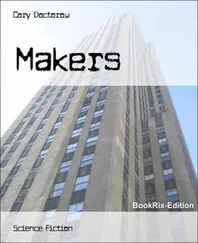Cory Doctorow - Someone Comes to Town, Someone Leaves Town
Здесь есть возможность читать онлайн «Cory Doctorow - Someone Comes to Town, Someone Leaves Town» весь текст электронной книги совершенно бесплатно (целиком полную версию без сокращений). В некоторых случаях можно слушать аудио, скачать через торрент в формате fb2 и присутствует краткое содержание. Год выпуска: 2005, ISBN: 2005, Издательство: Tor Books, Жанр: Киберпанк, на английском языке. Описание произведения, (предисловие) а так же отзывы посетителей доступны на портале библиотеки ЛибКат.
- Название:Someone Comes to Town, Someone Leaves Town
- Автор:
- Издательство:Tor Books
- Жанр:
- Год:2005
- ISBN:0765312786
- Рейтинг книги:5 / 5. Голосов: 1
-
Избранное:Добавить в избранное
- Отзывы:
-
Ваша оценка:
- 100
- 1
- 2
- 3
- 4
- 5
Someone Comes to Town, Someone Leaves Town: краткое содержание, описание и аннотация
Предлагаем к чтению аннотацию, описание, краткое содержание или предисловие (зависит от того, что написал сам автор книги «Someone Comes to Town, Someone Leaves Town»). Если вы не нашли необходимую информацию о книге — напишите в комментариях, мы постараемся отыскать её.
Someone Comes to Town, Someone Leaves Town — читать онлайн бесплатно полную книгу (весь текст) целиком
Ниже представлен текст книги, разбитый по страницам. Система сохранения места последней прочитанной страницы, позволяет с удобством читать онлайн бесплатно книгу «Someone Comes to Town, Someone Leaves Town», без необходимости каждый раз заново искать на чём Вы остановились. Поставьте закладку, и сможете в любой момент перейти на страницу, на которой закончили чтение.
Интервал:
Закладка:
Someone Comes to Town, Someone Leaves Town
Cory Doctorow
doctorow@craphound.com
Published by Tor Books
July 2005
ISBN: 0765312786
http://craphound.com/someone
Some Rights Reserved
About this book
This is my third novel, and as with my first, Down and Out in the Magic Kingdomand my second, Eastern Standard Tribe, I am releasing it for free on the Internet the very same day that it ships to the stores. The books are governed by Creative Commons licenses that permit their unlimited noncommercial redistribution, which means that you’re welcome to share them with anyone you think will want to see them. In the words of Woody Guthrie:
“This song is Copyrighted in U.S., under Seal of Copyright #154085, for a period of 28 years, and anybody caught singin it without our permission, will be mighty good friends of ourn, cause we don’t give a dern. Publish it. Write it. Sing it. Swing to it. Yodel it. We wrote it, that’s all we wanted to do.”
Why do I do this? There are three reasons:
Short Term
In the short term, I’m generating more sales of my printed books. Sure, giving away ebooks displaces the occasional sale, when a downloader reads the book and decides not to buy it. But it’s far more common for a reader to download the book, read some or all of it, and decide to buy the print edition. Like I said in my essay, Ebooks Neither E Nor Books, digital and print editions are intensely complimentary, so acquiring one increases your need for the other. I’ve given away more than half a million digital copies of my award-winning first novel, Down and Out in the Magic Kingdom, and that sucker has blown through five print editions (yee-HAW!), so I’m not worried that giving away books is hurting my sales.
Long Term
Some day, though, paper books will all but go away. We’re already reading more words off of more screens every day and fewer words off of fewer pages every day. You don’t need to be a science fiction writer to see the writing on the wall (or screen, as the case may be).
Now, if you’ve got a poor imagination, you might think that we’ll enter that era with special purpose “ebook readers” that simulate the experience of carrying around “real” books, only digital. That’s like believing that your mobile phone will be the same thing as the phone attached to your wall, except in your pocket. If you believe this sort of thing, you have no business writing sf, and you probably shouldn’t be reading it either.
No, the business and social practice of ebooks will be way, way weirder than that. In fact, I believe that it’s probably too weird for us to even imagine today, as the idea of today’s radio marketplace was incomprehensible to the Vaudeville artists who accused the radio station owners of mass piracy for playing music on the air. Those people just could not imagine a future in which audiences and playlists were statistically sampled by a special “collection society” created by a Congressional anti-trust “consent decree,” said society to hand out money collected from radio stations (who collected from soap manufacturers and other advertisers), to compensate artists. It was inconceivably weird, and yet it made the artists who embraced it rich as hell. The artists who demanded that radio just stop went broke, ended up driving taxis, and were forgotten by history.
I know which example I intend to follow. Giving away books costs me nothing , and actually makes me money. But most importantly, it delivers the very best market-intelligence that I can get.
When you download my book, please: do weird and cool stuff with it. Imagine new things that books are for, and do them. Use it in unlikely and surprising ways. Then tell me about it . Email mewith that precious market-intelligence about what electronic text is for, so that I can be the first writer to figure out what the next writerly business model is. I’m an entrepreneur and I live and die by market intel.
Some other writers have decided that their readers are thieves and pirates, and they devote countless hours to systematically alienating their customers. These writers will go broke. Not me—I love you people. Copy the hell out of this thing.
Medium Term
There may well be a time between the sunset of printed text and the appearance of robust models for unfettered distribution of electronic text, an interregnum during which the fortunes of novelists follow those of poets and playwrights and other ink-stained scribblers whose industries have cratered beneath them.
When that happens, writerly income will come from incidental sources such as paid speaking engagements and commissioned articles. No, it’s not “fair” that novelists who are good speakers will have a better deal than novelists who aren’t, but neither was it fair that the era of radio gave a boost to the career of artists who played well in the studios, nor that the age of downloading is giving a boost to the careers of artists who play well live. Technology giveth and technology taketh away. I’m an sf writer: it’s my job to love the future.
My chances of landing speaking gigs, columns, paid assignments, and the rest of it are all contingent on my public profile. The more people there are that have read and enjoyed my work, the more of these gigs I’ll get. And giving away books increases your notoriety a whole lot more than clutching them to your breast and damning the pirates.
So there you have it: I’m giving these books away to sell more books, to find out more about the market and to increase my profile so that I can land speaking and columnist gigs. Not because I’m some patchouli-scented, fuzzy-headed, “information wants to be free” info-hippie. I’m at it because I want to fill my bathtub with money and rub my hands and laugh and laugh and laugh.
Developing nations
A large chunk of “ebook piracy” (downloading unauthorized ebooks from the net) is undertaken by people in the developing world, where the per-capita GDP can be less than a dollar a day. These people don’t represent any kind of commercial market for my books. No one in Burundi is going to pay a month’s wages for a copy of this book. A Ukranian film of this book isn’t going to compete with box-office receipts in the Ukraine for a Hollywood version, if one emerges. No one imports commercial editions of my books into most developing nations, and if they did. they’d be priced out of the local market.
So I’ve applied a new, and very cool kind of Creative Commons license to this book: the Creative Commons Developing Nations License. What that means is that if you live in a country that’s not on the World Bank’s list of High-Income Countries, you get to do practically anything you want with this book.
While residents of the rich world are limited to making noncommercial copies of this book, residents of the developing world can do much more. Want to make a commercial edition of this book? Be my guest. A film? Sure thing. A translation into the local language? But of course.
The sole restriction is that you may not export your work with my book beyond the developing world . Your Ukranian film, Guyanese print edition, or Ghanian translation can be freely exported within the developing world, but can’t be sent back to the rich world, where my paying customers are.
It’s an honor to have the opportunity to help people who are living under circumstances that make mine seem like the lap of luxury. I’m especially hopeful that this will, in some small way, help developing nations bootstrap themselves into a better economic situation.
Читать дальшеИнтервал:
Закладка:
Похожие книги на «Someone Comes to Town, Someone Leaves Town»
Представляем Вашему вниманию похожие книги на «Someone Comes to Town, Someone Leaves Town» списком для выбора. Мы отобрали схожую по названию и смыслу литературу в надежде предоставить читателям больше вариантов отыскать новые, интересные, ещё непрочитанные произведения.
Обсуждение, отзывы о книге «Someone Comes to Town, Someone Leaves Town» и просто собственные мнения читателей. Оставьте ваши комментарии, напишите, что Вы думаете о произведении, его смысле или главных героях. Укажите что конкретно понравилось, а что нет, и почему Вы так считаете.








